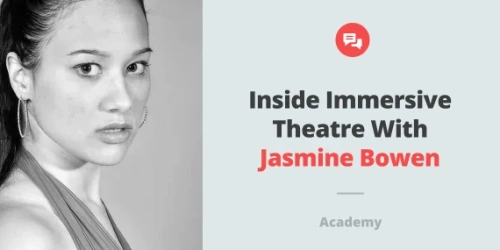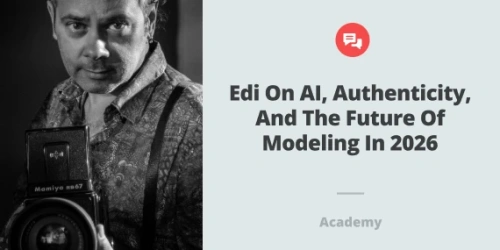About Matthew Marshall
Matthew Marshall has over 30 years of experience in the film industry. He is an award-winning producer, director, and scriptwriter. He is the co-owner of m & s Marshall Production and the co-founder of iFilmGroup. Matthew has worked with various professionals and held every position on a film crew. He specializes in directing and scriptwriting but has a post-graduate certificate in broadcast digital editing and applications. He has produced such award-winning films as the feature-length Daughter of the King and the short film Tuned In. His movies have captured 100 awards and have been officially selected for 42 other festivals worldwide, with additional nominations in festivals as well. Of the awards won, Matthew has won 15 awards for director of his various films.
Marshall enjoys mentoring young and old filmmakers through iFilmGroup, an inter-generational program with youth and seniors making films. The group builds multi-generational relationships and networks by mentoring those involved in filmmaking as the different generations transition through life's journey. The iFilmGroup is preparing an online training platform for actors and filmmakers to participate in. They also offer in-person workshops in the Southwestern Ontario Area.
Marshall has served on several film festival panels in the media arts industry and is Film Festival Co-Director for the iFilmGroup International Film Festival with his iFilmGroup business partner.
1. At What Point in Your Life Did You Realize That Filmmaking Was Your True Passion, and How Did You Nurture That Passion Over the Years?
As an award-winning scriptwriter and filmmaker, I look back at what I have accomplished, and it can feel like I am reading someone else's story. I have had the opportunity to wear many hats through the years and have worked almost every crew position on a film set at least once. Through my journey in the media arts, I have had a lot of great people who have mentored me in the early and intermediate years of my career. I am thankful for the industry professionals who saw potential in me and gave me opportunities in my early years in the industry. Working in theatre, video, and film has taught me a wide range of acting and production aspects and helped me become who I am today. All my opportunities make up for the impressive opportunities I have had. But my success is very much based on the foundation of the people who taught and mentored me. That is why I am so blessed to be a co-founder of an organization like iFilmGroup, where mentoring and teaching are the foundation of what we do within the independent film industry. I feel very blessed to pay it forward to new people within the industry on both sides of the camera. The many people who mentored me were part of my desire to create iFilmGroup to give back to others what was given to me. To help people future their careers in the arts.
Early on in life, I knew I wanted to make and tell stories. It started in the sandbox with action figures and grew when I realized that these stories could be recorded and turned into films. At that point, I started to search for media-minded people around me in my life who could help nurture my passion and help develop the skills I needed. Early on, I worked on my scriptwriting abilities, and then, when I was a teenager, I worked on some independent film sets. Which led to making some early films in my mid to late teams on home video cameras.
2. Your Short Films Have Received Numerous Awards. Can You Share the Story Behind One of Your Most Successful Short Films and What You Believe Contributed to Its Success?
I have had the opportunity to be blessed with making films that have won awards and been showcased in film festivals around the world. I have always written stories about people and things that affect them. I was told by a drama teacher in High school to write personal stories and that if I could write stories that were female-driven, I would have double the number of female actors apply. That same double amount would also be my audience. That has been advice that has paid off. A lot of my films have centered around dramatic social issues. Events at a party that goes wrong, teenage pregnancy, bullying, what a person diagnosed with cancer deals with in preparing to die. My two most successful films have dealt with Human Trafficking and communication in the family. Daughter of the King was my social justice film about redemption told through the eyes of a down-on-her-luck woman who is forced into human trafficking. It was being made when the issues of human trafficking were just coming to the forefront. So, when it was released, it was a topic that sparked interest. The other film, Tuned In, was dealing with communication and a youth being on her cell phone. Once again, the issue was something that was current and a film that created discussion. Many of the topics I have tackled in films have been topics that people relate to, and I feel that has contributed to my success at festivals and winning one hundred awards for various films around the world.
3. When It Comes to Casting for Your Projects, What Qualities Do You Look For in Actors, and How Do You Go About Selecting the Right Talent for Each Role?
When it comes to casting for my films, what I look for has evolved over the years, but at its core is acting candidates that are sincere and believable as a character. Individuals who can bring real-life drama to a character always catch my attention. As I have evolved as a filmmaker and casting agent, I believe that comes from actors who explore and develop their characters and make bold choices during their auditions. Even if the actor has a slightly different take on the character than my vision, I highly respect an individual who is willing to make a choice in their character, embrace it, and go for it. Things like being responsive to messages show that they are people who want to be a part of our projects. Showing up on time to auditions tends to mean they will show up on time, ready to work for the production. Putting the work into a character and developing the role for an audition normally means they will put the work into the role and be prepared for filming. Then, the final component for me is someone who takes redirection well and asks questions about the character and what they are being asked to do for an audition. It shows they are engaging and want to create the best performance they can for the role. All this goes into finding the right person for the role. Sometimes, the greatest factor is gut instinct and how they feel to me in the audition. Sometimes, it's not the most talented person that wins the role. Sometimes, the person with less experience comes in and gives their all, and I just get that gut feeling they are the right choice. And those gut feelings have led to a few people winning best-acting awards for films we have done.
4. In Your Experience, What Role Do Short Films Play in the Larger Landscape of Filmmaking, and How Do They Differ From Feature-Length Films in Terms of Storytelling?
In your experience, short films offer a great opportunity for both filmmakers and actors to showcase their talents and get them out to the greater public. I have been known for not always creating the shortest story. For the most part, that path has been successful. But now, I have been a film festival director and have been judging at a few different festivals. I see the power of creating a short film in getting to a broader market through festivals and social media to show off your talent. More film festivals are looking for short films because it allows them to show more films. Feature films are much more marketable for distribution. But they take more time, money, and resources to create and make well. A short film can be a great tool to springboard careers, which hopefully leads to Feature film opportunities.
5. As Someone Who Runs a Training School, What Advice Do You Have for Aspiring Filmmakers and Actors Looking To Break Into the Industry?
By moving into a training base for the iFilmGroup, we have focused on some aspects within the industry that I have seen repeated over the years. For many filmmakers and aspiring actors, talent will get them all the way, although talent is important. Training and learning skills are important as well. The actors who audition and are successful do certain things. The filmmakers who are successful have figured certain things out to help get their films made and seen. The greatest piece of advice I can give. Get training, learn, get mentored. Work with other people in the industry and learn different styles and techniques. Work with other artists. We are all looking to get paid for our work, and we should be paid. But I lost track of the number of films I have worked on; I just wanted to be part of the crew to learn and work with certain people. In every one of those cases, I walked away with invaluable knowledge. Acting and filmmaking are crafts that you are never done learning.
6. Could You Share Some Insights Into the Creative Process Behind Your Filmmaking? How Do You Come Up With Ideas and Bring Them to Life on the Screen?
The creative process behind my films happens in a few ways. Sometimes, I get ideas for scenes from my mind or things I see. Maybe it's an event in the world. Inspiration can come from any source when wishing to come up with a script and, eventually, a film. I recall back to those days in the sandbox with action figures and how every day could be a new adventure. Filmmaking is the same way. You are only limited by your imagination. Followed by the money to film, the locations you can secure, and the talent you can pitch to be part of your films.
7. The Entertainment Industry Is Known for Its Challenges. What Obstacles Have You Faced in Your Career, and How Did You Overcome Them?
The entertainment industry is hard to break into and is well-known for its challenges. I have been told many times that it's an industry that you have to have a strong passion and love for to stay in it. Your desire to do it has to be more than a want to be in it. There has to be a desire and almost addiction to it. It has to be something you just can't live without. That goes for acting or filmmaking. Making a film and seeing it come to life and shown on a screen is the most natural drug I have ever had, and even in the darkest times when I have wanted to give up, this natural drug is why I keep going. Getting recognized and taken seriously is one of the biggest challenges. But once you start having success, it's like climbing a mountain. At some point, you will get closer to the top even if you don't become famous. You will start to have success. A big key is networking and working with others. But to survive in the entertainment industry, you really need perseverance and dedication. I have never let what other people think control what I think about myself and my work.
8. With the Ever-Evolving Landscape of Technology and Storytelling, How Do You Stay Inspired and Continue to Push Boundaries in Your Work?
With the ever-evolving landscape of technology and storytelling, it is easy to stay inspired. The ability to make films in the last ten years has become easier with the advancement of technology and the development of even semi-pro-gear films at a leave that takes you to a pro-quality. The number of people I see filming on phones recently is amazing. Advancements make it easier to push boundaries, and you are only limited by your imagination and creativity. The opportunities are out there if you grasp them. Even thinking of ideas you can do within your house for short films is a great exercise for filmmakers and actors.
9. What Projects Are You Currently Working On, and What Can We Expect From Matthew Marshall Shortly?
Our focus at iFilmGroup, as we look ahead shortly, is on our online training platform. Filming is exploding in Southwestern Ontario, and the film companies coming into the area are looking for more developed and better-trained individuals. We wish within our network in London, Ontario, and the area to help meet that need so we can help the entire film industry within our area grow and flourish. With mentoring, we continue to nurture upcoming filmmakers while having in-person workshops for production crew and actors.
The iFilmGroup mentoring program is seeing an increase in the number of people interested in participating in our program. The ability to be part of filming footage for the training program while creating dramatic clips and footage that aspiring actors and filmmakers can use for demo reels has been a huge success. It allows actors and crew to have personal training and mentoring in a film setting that offers invaluable experience for those coming up in the industry. Creating that environment and mentoring those involved generates enough work to keep me busy and feed his dramatic obsession for film and filmmaking. That, combined with assisting local organizations with casting and finding new talent that can be developed, I have a full plate. Mentoring and teaching are the right places for me at this time. But fear not, Matthew Marshall has many scripts and ideas ready to be turned into films when the time and opportunity seems right.






